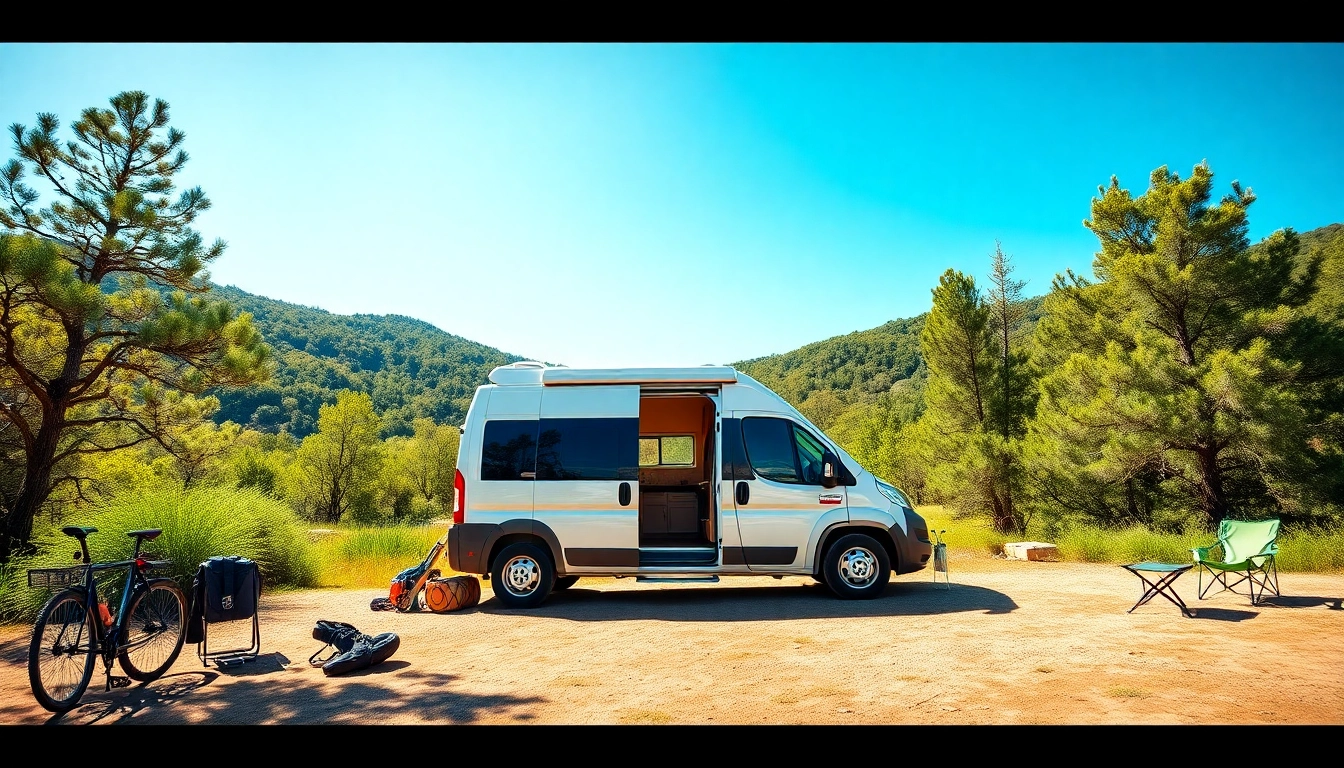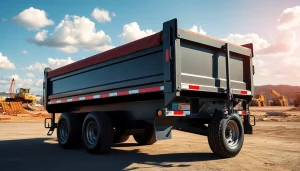Comprehensive Guide to Choosing the Perfect Camper Van for Your Adventures
Introduction to Camper Vans
Camper vans have become increasingly popular as a versatile option for travelers looking to combine the freedom of the open road with the comforts of home. These compact, self-contained vehicles offer a unique blend of mobility and functionality, making them an ideal choice for adventurers, weekend warriors, and even those considering full-time living on the road. Whether you’re a seasoned traveler or new to the camping scene, understanding the nuances of camper vans can help you make informed decisions about your next adventure.
What is a Camper Van?
A camper van, often referred to as a Class B motorhome, is a compact vehicle designed specifically for travel and camping purposes. Unlike larger RVs, camper vans are typically built on a van chassis, making them easier to maneuver, park, and drive in urban areas. Inside, they are equipped with essential amenities such as beds, kitchenettes, and sometimes even bathrooms, allowing for comfortable living while on the road. Their versatility allows for a range of travel experiences, whether it’s a weekend getaway or a months-long journey.
Benefits of Traveling in a Camper Van
Traveling by camper van offers numerous advantages:
- Flexibility: You can travel on your own schedule, choosing where and when to stop without the limitations of hotel reservations.
- Cost-Effective: Over time, a camper van can save money on accommodations and dining, as it allows for cooking and sleeping in the vehicle.
- Comfort of Home: Many camper vans come equipped with comfortable beds, heating, and even bathrooms, providing a homelike atmosphere during travels.
- Connection with Nature: With a camper van, you can easily access natural landscapes, national parks, and remote areas that may be challenging with standard vehicles.
- Community: The camper van and van life community offers camaraderie among fellow travelers, with opportunities for shared experiences and tips.
Common Types of Camper Vans
Camper vans come in various shapes and sizes, catering to diverse needs and preferences. Here are some of the most common types:
- Standard Camper Vans: These vans typically have a high roof to allow for standing room and come equipped with basic amenities such as a bed, kitchenette, and storage.
- Expandable Vans: Some models have pop-tops or slide-outs that increase living space when parked, making them ideal for larger groups or families.
- Luxury Vans: Equipped with high-end materials and amenities like full kitchens and bathrooms, luxury camper vans cater to those seeking a more comfortable lifestyle.
- DIY Vans: Many van lifers choose to convert their own vans, allowing for personalized layouts and features that suit their lifestyle.
Key Features to Look for in a Camper Van
Essential Amenities for Comfort
When selecting a camper van, consider the following essential amenities that can enhance your travel experience:
- Bed: A comfortable and functional sleeping arrangement is crucial. Consider the size and type, whether a fixed bed or a convertible seating arrangement.
- Kitchen Facilities: Look for a kitchenette complete with a stove, sink, and storage for cooking essentials to prepare meals on the road.
- Bathroom: While not all camper vans come with a bathroom, having a built-in toilet or shower can significantly increase convenience, especially for longer trips.
- Heating and Cooling: Climate control features are important for comfort, especially in extreme temperatures.
- Storage: Adequate storage for personal items, gear, and supplies is essential for organization and accessibility.
Safety Features That Matter
Safety should never be overlooked when choosing a camper van. Here are key features to look out for:
- Stability and Handling: Choose a model with a good weight distribution and a strong chassis to ensure reliable handling on various terrains.
- Braking Systems: Advanced braking systems, including anti-lock brakes (ABS) and electronic stability control (ESC), enhance driving safety.
- Airbags: Ensure the vehicle is equipped with adequate airbags for driver and passenger protection in the event of a collision.
- Safety Ratings: Research safety ratings and crash test results for different models to make an informed choice.
Choosing the Right Size and Layout
The size and layout of your camper van can greatly affect your experience. Consider the following:
- Number of Passengers: Select a van that can comfortably accommodate everyone traveling with you, keeping sleeping and seating arrangements in mind.
- Usage: Determine how often and for what type of journeys you’ll be using the van. Short weekend trips may require less space compared to prolonged travels.
- Storage Needs: Ensure there’s enough storage space for your belongings and outdoor gear, particularly if you’re an active traveler.
Budgeting for Your Camper Van Purchase
New vs. Used Camper Vans: Which is Better?
Deciding between a new or used camper van typically hinges on budget and preferences:
- New Camper Vans: They come with the latest features and warranties but will cost significantly more upfront. New vans can be customized to individual preferences and often boast the newest technologies.
- Used Camper Vans: These can present excellent value for money, especially for budget-conscious travelers. However, it’s crucial to have a thorough inspection done to avoid hidden issues. Also, the age may influence warranty availability and features.
Financing Options for Your Camper Van
Financing a camper van can be approached in various ways:
- Traditional Loans: Banks and credit unions offer loans specifically for RVs or vehicles, aiding in purchasing your camper van cost-effectively.
- Manufacturer Financing: Many dealerships provide financing options directly, often with promotional rates for new models.
- Leasing: For those considering a temporary solution, leasing can be a viable option, though it comes with mileage limits and other conditions.
- Peer-to-Peer Lending: Platforms that connect borrowers with individual lenders may offer competitive rates, especially if credit history is strong.
Hidden Costs of Owning a Camper Van
Owning a camper van isn’t just about the purchase price. Consider the following hidden costs that can add up:
- Insurance: Costs can vary based on coverage, the van’s value, and your driving history. Make sure to get quotes from different providers.
- Maintenance: Regular upkeep, including oil changes, tire rotations, and brake checks, can add significant costs over time.
- Gas: Gas prices fluctuate, and the size and efficiency of the van will determine how much you’ll spend on fuel.
- Camping Fees: Many campgrounds charge fees, which can add up depending on how frequently you travel.
Tips for Maintaining Your Camper Van
Regular Maintenance Best Practices
To keep your camper van in top shape, follow these best practices:
- Regular Inspections: Conduct routine checks on all systems including plumbing, electrical, and mechanical parts. Early detection of issues can save significantly on future repairs.
- Fluid Checks: Monitor and replace essential fluids such as oil, coolant, brake fluid, and transmission fluid as recommended in the owner’s manual.
- Tire Care: Regularly inspect your tires for proper inflation and tread wear to enhance safety and fuel efficiency.
Preparing Your Camper Van for Seasonal Changes
Seasonal changes can pose unique challenges for camper van owners. Consider the following preparations:
- Winterization: If you’re not using your camper van in winter, drain water systems to prevent freezing and damage. Protect sensitive areas with antifreeze and consider using a breathable cover.
- Summer Readiness: Ensure that air conditioning units are functional, and check for any leaks. Protect the paint from prolonged sunlight to prevent damage.
Troubleshooting Common Camper Van Issues
Understanding common camper van problems can help you address issues quickly:
- Electrical Problems: Troubleshoot by checking the battery, connections, and fuses. Keep a multimeter handy for diagnosing electrical issues.
- Water System Leaks: Regularly inspect hoses and connections for leaks, and keep repair materials on hand for swift fixes.
- Engine Troubles: Monitor engine sounds and performance. Prioritize oil and filter changes to avoid more significant problems down the line.
Planning Your Next Adventure in a Camper Van
Ideal Destinations for Camper Van Travelers
Choosing the right destinations can make your camper van journey unforgettable. Consider these ideal locations:
- National Parks: Explore beautiful parks such as Yellowstone, Yosemite, or Zion, which are camper van-friendly and offer breathtaking views.
- Coastal Roads: Scenic drives like the Pacific Coast Highway provide stunning ocean views and plenty of camping spots.
- Mountain Trails: Head to places with mountains for hiking, biking, and remarkable views, ensuring there are camping facilities available.
Essential Gear for Road Trips
Equipping your camper van with essential gear on your road trip can enhance comfort and convenience:
- Cooking Equipment: Invest in portable cooking appliances, utensils, and storage containers for meal preparation.
- Outdoor Gear: Bring along gear for activities you enjoy, whether that’s hiking, biking, or fishing.
- Emergency Supplies: Keep a first-aid kit, spare tire, and basic tools for minor repairs and emergencies.
Understanding Camping Regulations and Parking Etiquette
Knowing the rules and etiquette associated with camping can ensure a positive experience:
- Research Local Laws: Camping regulations vary by location, including rules on where to park overnight and camp, often outlined on state or national park websites.
- Practice “Leave No Trace”: Follow principles that minimize your impact on nature, such as cleaning up after yourself and respecting wildlife.
- Respect Quiet Hours: Many campgrounds have designated quiet hours; be mindful of noise levels, particularly at night.



